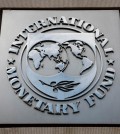- California Assembly OKs highest minimum wage in nation
- S. Korea unveils first graphic cigarette warnings
- US joins with South Korea, Japan in bid to deter North Korea
- LPGA golfer Chun In-gee finally back in action
- S. Korea won’t be top seed in final World Cup qualification round
- US men’s soccer misses 2nd straight Olympics
- US back on track in qualifying with 4-0 win over Guatemala
- High-intensity workout injuries spawn cottage industry
- CDC expands range of Zika mosquitoes into parts of Northeast
- Who knew? ‘The Walking Dead’ is helping families connect
AI Seoul Summit adopts joint ministerial statement on safe, innovative, inclusive AI
Ministerial level representatives of 28 countries and international organizations on Wednesday adopted a joint statement calling for the advancement of the safety, innovation and inclusivity of artificial intelligence (AI) technology in a global AI summit, Seoul’s science ministry said.
The Seoul Ministerial Statement includes South Korea’s vision on AI and semiconductor technologies aimed at developing low-power chips to respond to massive consumption deriving from the fast expansion of the AI industry, according to the Ministry of Science and ICT.
“We will work to stand in solidarity with international society to establish global AI governance and regulations with the leadership we secured by hosting the AI Seoul Summit and the AI Global Forum,” Science Minister Lee Jong-ho said.
The joint statement was announced at the ministers’ session of the two-day AI Seoul Summit co-hosted by South Korea and Britain. The summit brought together representatives from 19 countries, including the United States, Japan and Germany, as well as from the United Nations and the European Commission.
Industry officials, including Jason Kwon, chief strategy officer of OpenAI, and Tom Lue, vice president of Google DeepMind, also joined the session.
The ministers’ statement came in line with the Seoul Declaration adopted during a virtual leaders’ session of the AI Seoul Summit, hosted by President Yoon Suk Yeol and British Prime Minister Rishi Sunak the previous day.
The Seoul Declaration called for promoting safe, innovative and inclusive AI to address the challenges and opportunities associated with the fast-evolving technology.
The AI Seoul Summit is a follow-up to last year’s inaugural global AI safety summit, where the first global guidelines on AI safety were adopted.
Earlier in the day, a group of South Korean and global tech companies also adopted a joint pledge in the AI Global Forum, held on the sidelines of the AI summit, vowing to responsibly develop and use AI and to address social challenges with the technology.
The Seoul AI Business Pledge was announced by 14 companies, including Korea’s Samsung Electronics Co., Naver Corp., Kakao Corp. and KT Corp., as well as global big tech companies, such as Google, Microsoft, OpenAI and IBM, during the opening ceremony of the AI Global Forum in Seoul.
“We commit to upholding the three strategic priorities, through our efforts including advancing AI safety research, identifying best practices, collaborating across sectors, and helping AI meet society’s greatest challenges,” the pledge read.
The three priorities are: ensuring responsible development and use of AI, pursuing sustainable development and innovation in AI, and ensuring the equitable benefits of AI for all.
In the pledge, the companies acknowledge the rapid acceleration of technological advancements in AI and their growing impact on the global community.
In the opening ceremony of Wednesday’s forum, Andrew Ng, head of the global AI venture studio AI Fund, delivered a keynote speech, urging governments to promote both innovation and safety in AI.
“Even though the media tends to focus on AI technology, most of the opportunities are in building AI applications,” said Ng, emphasizing the distinction between technology and its applications, which meet specific customer needs.
He noted, “Risks are a function of the application, not the technology,” and recommended that governments regulate specific AI applications rather than general-purpose technologies like large language models.
Ng also said AI can be a “solution” to the challenges the global society faces, such as climate change, by providing AI simulations.
Marc Raibert, founder of U.S. robotics firm Boston Dynamics and the executive director of the AI Institute, also said in a speech that the integration of AI and robotics technologies can increase productivity around the world and give opportunities to solve humanity’s problems.











